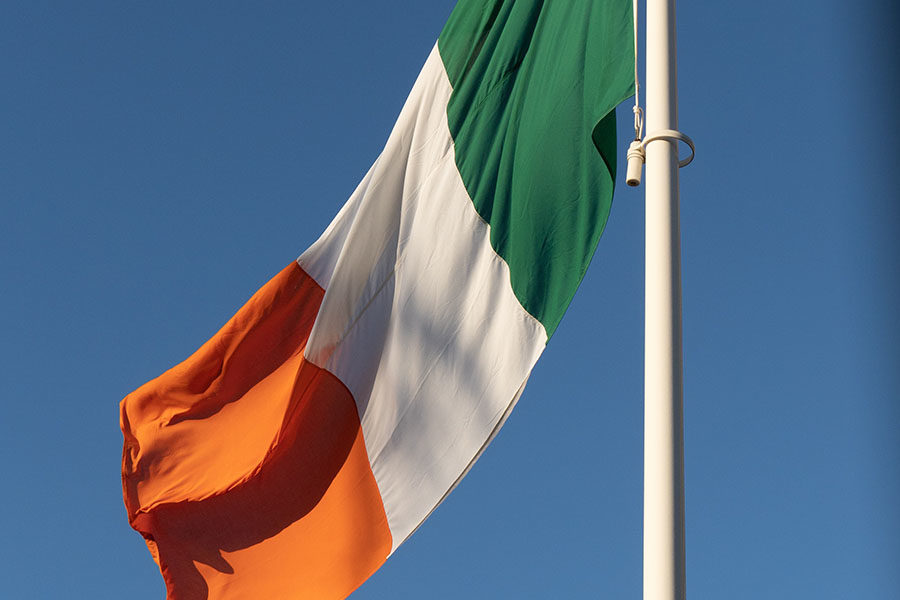James Browne clarifies details of new Irish Gambling Regulation Bill

The minister for law reform has presented the bill for its second reading.
Ireland.- The minister for law reform James Browne has presented Ireland’s Gambling Regulation Bill for its second reading in parliament. The bill, which was approved at its first reading, will create a dedicated gambling regulator for Ireland and introduce the regulation of online gambling.
The industry has largely welcomed the bill, but there has been concern about broad language on the subject of a prohibition of gambling promotions. In a speech to parliament, Browne clarified details on that and other matters.
Describing the bill as a “true milestone,” he said it was “designed to meet the challenges of gambling responsibly in 21st century Ireland”. He said that the bill’s main objective was to present the framework for a “robust regulatory and licensing regime for the gambling sector in Ireland” through the creation of the Údarás Rialála Cearrbhachais na hÉireann or the Gambling Regulatory Authority of Ireland.
He said the bill aims to:
- Ensure that gambling is conducted in a fair and open way for companies to make decisions with certainty.
- Require safeguards to address problem gambling including protecting children and addressing gambling advertising.
- Prevent gambling from being a source of or support to crime.
Gambling advertising: players will have to opt-in for online ads
Browne said that the bill does not provide for an “outright ban on gambling advertising or sponsorship”. However, he said that to address the proliferation of gambling advertising on social media, a person may only receive gambling advertising when they opt-in to receiving it on an on-demand or media sharing platform or, in the case of social media, “only where a person subscribes to such services and platforms and gives their consent to receiving such advertising”.
Browne added that the bill provides for a watershed prohibiting the broadcast of gambling advertising on television and radio between the hours of 5.30am and 9.00pm. Moreover, the bill also provides for a wide-ranging power to allow the new regulator to prescribe the times, places and events where gambling advertising can be broadcast, displayed or published, and to specify the frequency, duration and amount of advertisements.
Part 6 of the bill also provides for a new offence where a licensee offers any form of inducement to a person to encourage them to gamble or to continue to gamble. This includes the offer of hospitality or VIP treatment, free bets or favourable treatment/better odds to entice a person to gamble.
Also of note, this part provides that following consultation with the Gambling Regulation Authority, regulations may be made to limit or prohibit the offer of promotions by licensees that directly or indirectly encourage the public to gamble.
Timescale for the introduction of the Gambling Regulation Bill
Browne noted that the size of the Irish gambling industry was more than €6bn annually and that gambling was an important fundraising activity for charitable and local community organisations.
He added that:
- Regulation of the National Lottery will not come under the remit of this bill at this time – it is provided for in the National Lottery Act 2013 and has its own regulator.
- Part 9 of the Electoral Reform Act 2022, where it provides for lottery fund-raising by political parties, remains unaffected by this bill.
- Excise matters are outside the remit of this bill.
- This bill will require notification to the European Commission under the Technical Standards Directive as it provides for the power of the Authority to impose legal obligations regarding technical standards in relation to gambling products and gambling-related services.
Anne Marie Caulfield has already been appointed as CEO designate for the future Gambling Regulatory Authority. Browne said she was working closely with his department to identify staffing and resourcing needs and to develop procedures for how the regulator will function once it is operational.
He said this will allow the regulator to “hit the ground running once it is formally established” but that a phased commencement will be necessary in light of the scale and complexity of the transitional and operational arrangements for a new licensing and regulatory regime.
He said he hoped that the bill would enter force by mid-2023 with the intention of establishing the Gambling Regulator Authority later in the year.










